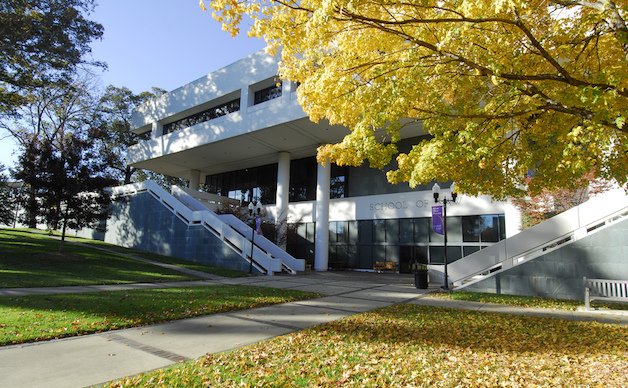
Sunday Splits
Serving You Circuit Splits Every Sunday
Avi Sholkoff | The 1996 Telecommunications Act and the Nondelegation Doctrine
In 1996, Congress passed the Telecommunications Act, overhauling communications law for the first time in decades. In this statute, Congress directed the FCC to establish a Universal Service Fund—a subsidy program aimed at achieving robust, nationwide telecommunication service. 47 U.S.C. § 254. The act describes principles for achieving universal service (such as telecommunications and internet service), including access to advanced services for schools, rural health care facilities, and libraries. Id. at § 254(b).
Holly McDaniel | Notice Needed?: Courts Split on Evidentiary Notice for Asylum Proceedings
A circuit split has developed concerning whether applicants for asylum are required to receive notice of evidence needed for removal proceedings. The split centers on a provision of the Immigration and Nationality Act (INA) concerning burden of proof in granting asylum.
Sarah Lee | Ice, Ice, Baby!: Federal Jurisdiction in Expedited Removal Procedures
The question plaguing the circuit courts is whether the DHS’s expedited removal procedures allow aliens to contest only the factual basis for their removal, and not to raise legal arguments. If so, then a non-citizen has an arguable claim that he has not failed to exhaust his remedy; in other words, because there was no remedy to exhaust, the non-citizen is entitled to appellate review.
Anton Lesaca | Deep in the Heart of Venue: A Patent Procedure Wrinkle
Based on this ruling by the CAFC, TC Heartland has begun the process of SCOTUS review, relying on the argument that CAFC has unilaterally overturned Supreme Court precedent in neglecting the holding of Fourco. As the amici briefs churn into the SCOTUS docket for this case, it raises the question of just where the Supreme Court will fall on this.
Hannah Yardley | A Split that Splits: Moral Turpitude in the Circuits
For a legal system that fetes both equality and predictability, the fact that neither non-citizens nor the State knows what the exact consequences are when a crime is committed is nonsensical and illogical. Non-citizens should have the heads up as to what will occur if they commit a crime. Part of this includes defining, once and for all, what our law means by “moral turpitude.” And, if we can’t, maybe it’s time we cut the turpitudinous knot.
Adam Gilbert | Damned If You Do, Damned If You Don’t: The FDCPA, the Bankruptcy Code, and a Split on Time-Barred Claims
The outcome of this circuit split will have large implications not only for the creditors filing these stale claims but also for the debtors.
If the Eleventh Circuit’s reasoning is followed, then not only will creditors miss out on an opportunity to be repaid, but the debtor will now have a civil cause of action against the holder the debt.
On the other hand, if the Fourth, Seventh, and Eighth Circuits are followed, holders of time barred debt will be able to continue to assert claims and hope to receive payment. And if this riveting split wasn’t reason enough to follow this case, the Supreme Court just granted cert to Johnson v. Midland.
Benjamin Ries | Just One-Day-Late: A Split On Filing Deadlines
It’s always a terrible feeling to be late. It can incite panic as you rush to finish a task. Being late by just one day has disqualified mayoral and Presidential candidates from making it onto the ballot. In the bankruptcy context, being a day late can prevent you from escaping from sizable debts. If only you had one day more!
